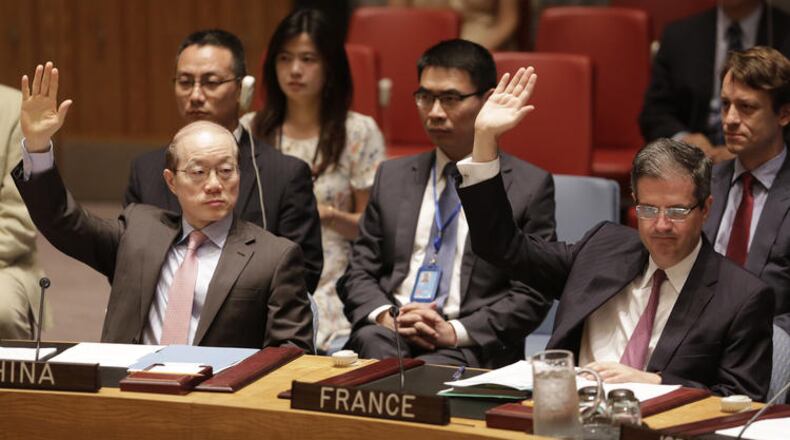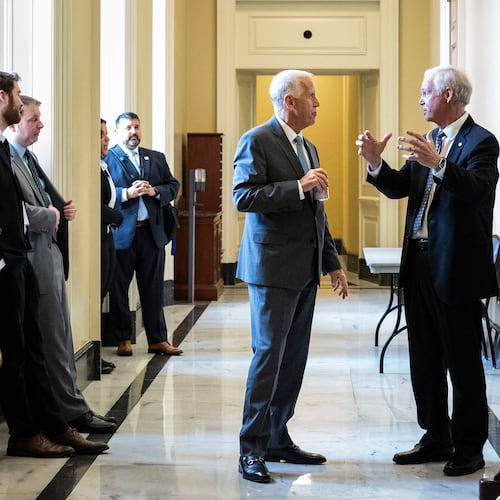The 15-member UN Security Council voted unanimously this morning to endorse the international agreement regarding Iran's nuclear program. The vote clears the way for the removal of U.N. economic sanctions against Iran as long as Iran meets its own obligations under the agreement.
Reportedly, the Obama administration had sought to delay the U.N. vote until the U.S. Congress had been given a chance to weigh in, but its negotiating partners overwhelmingly rejected the idea. France, Russia, China and other participants wanted to be on the record in support as soon as possible, thus making it more difficult for either the United States or Iran to withdraw.
And withdrawal would be a stunningly bad idea. Since the plan's announcement almost a week ago, arms-control experts have overwhelmingly given the agreement high marks, with many saying that it achieves more than they thought possible. The tenor is reflected in the assessment by the nonpartisan Arms Control Association, which concluded that the deal "establishes a strong and effective formula for blocking all of the pathways by which Iran could acquire material for nuclear weapons and promptly detecting and deterring possible efforts by Iran to covertly pursue nuclear weapons in the future." (For additional examples of overwhelmingly positive analysis, see here and here and here).
So why the almost hysterical opposition from critics? Why has Marco Rubio dubbed today "capitulation Monday," accusing Obama of "flat-out abandoning America's vital national security interests to cozy up to the world's most reprehensible regimes."? Why has Lindsey Graham called it “akin to declaring war on Israel and the Sunni Arabs”? Why did Israeli Prime Minister Benjamin Netanyahu call it Iran's "dream deal," claiming that the deal "paves Iran’s path to a nuclear arsenal” when arms experts believe it does quite the opposite?
Politics is of course much of the answer. But there's also a more substantive explanation, an explanation suggested by Netanyahu's other comments Sunday on "Face the Nation".
“It makes the problem of terrorism in the region and the world much worse by giving Iran billions of dollars for their war and terror machine,” Netanyahu said. “Not a good deal.”
That's a legitimate concern. The deal ensures that as long as the Iranians abide by its terms, they won't be attacked militarily, not by the United States and not by Israel. It means that Iran will be able to rejoin the global economy, once again selling its oil on the free market. It means that the world will reopen to Iran, with the hope that Iran reopens to the world. And it means that a less isolated, more prosperous Iran will be able to throw its weight around a little more openly, including militarily.
In short, it makes a nuclear Iran much less likely, but by doing so it might make Iran more dangerous in other ways. That's the tradeoff.
Netanyahu and his supporters don't accept that tradeoff. They envision an outcome that both guarantees a non-nuclear Iran and that keeps Iran weakened and isolated, but as many have pointed out, they propose no feasible means of attaining that dual outcome. Reality tends to be like that. It does not allow for perfect solutions, only solutions that might be better or worse than others.
In this case, arms-control experts believe that the nuclear deal with Iran is a significant, even improbable accomplishment within the parameters of an arms-control agreement. It does what it was supposed to do, what many thought it could never do. It does the Big Job of not just stopping but rolling back Iran's nuclear program.
The fact that it does not resolve issues outside those parameters should not lessen the importance of what it does do.
About the Author
Keep Reading
The Latest
Featured



